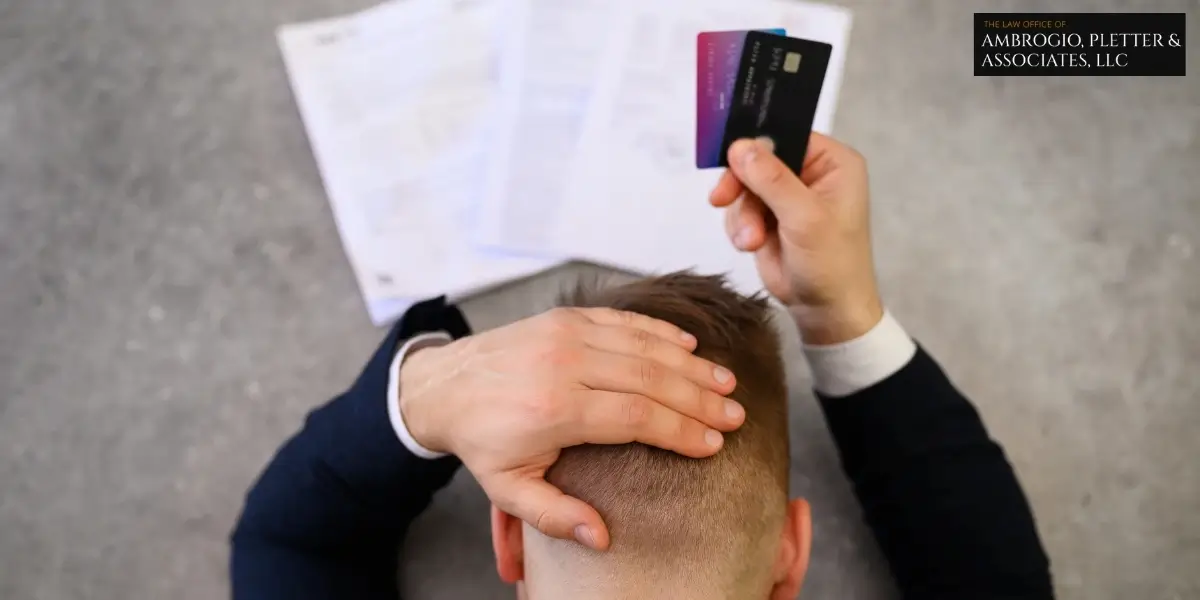Stratford Credit Card Debt Lawyer

Stratford Credit Card Debt Attorney
Many clients come to us struggling with credit card debt. Credit card debt, along with medical bill debt, is responsible for most personal bankruptcies. Job loss, high interest charges and other factors make it almost impossible to put a dent in the balance.
Credit card companies may go to court to garnish your wages or even put a lien on your home if you cannot pay. Fortunately, there is a way to escape these problems and work toward your credit score repair: bankruptcy. Credit card debt is unsecured debt and may be fully discharged under Chapter 7, or restructured and paid off under more favorable terms in Chapter 13 bankruptcy.
At Ambrogio, Pletter & Associates, LLC, in Stratford, Connecticut, we have been helping people regain control of their finances since 1982. To discuss your credit card debt with our experienced Stratford Credit Card Debt Lawyer, or to learn more about what past clients say about us, schedule a free consultation by calling us at 475-365-0898 .
Chapter 7: Eliminating Credit Card Debt
For many people who cannot afford to pay off their credit cards and other debts, Chapter 7 bankruptcy can provide a “fresh start.” Filing Chapter 7 immediately stops harassment by credit card companies and all other collection agencies, including continuing or beginning wage garnishments.
While most credit card debt can be fully discharged through Chapter 7 bankruptcy, there can be exceptions, and you should consult with our Stratford Credit Card Debt Lawyer to discuss requirements and other considerations.
Chapter 13: Reducing Credit Card Bills And Other Debt
In Chapter 13 bankruptcy, all unsecured debts such as credit cards, medical bills, personal loans and others are grouped together for repayment. The repayment plan determines how much income you have to devote to paying these debts. Unsecured creditors are only paid what you can reasonably afford after paying secured debt obligations, such as a mortgage or vehicle payment, as well as your monthly living expenses.
Depending on your budget and disposable income, you may only end up paying back a fraction of the total debt you owe. A Chapter 13 plan requires that you make your best effort to repay over a three- to five-year period. After that, remaining balance can be discharged or legally eliminated.
Chapter 13 repayment plans are systematic and specific to your financial situation. When you come in for a free initial consultation, our skilled bankruptcy attorneys in Stratford, CT will review your options with you. We also assist with tax concerns and help you rebuild your credit after bankruptcy.
Contact Our Stratford Credit Card Debt Lawyers Today
We can help you find the light at the end of the tunnel, help you take control of your finances and get a fresh start. To arrange your free consultation, call 475-365-0898 or contact our law firm online.
Take Action Today & Begin Moving Forward
Attorney Tim Pletter works directly with his clients, and most of your contact will be directly with him. Please contact our Stratford, Connecticut, office today to arrange your free consultation


